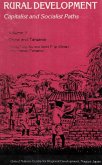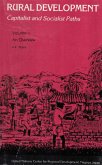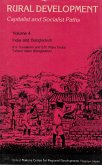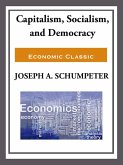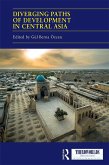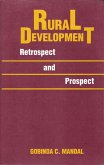This set of volumes is based on a UNCRD study of the impact of national policies and programmes on rural development in eight developing countries of Asia, Africa and Latin America.The Brazilian phenomenon of rural poverty in the midst of plenty is enigmatic in many ways, but it is true. It is a clear case of mal-development. Brazil is a country of vast natural resources, a part of it still untouched by man. Unlike China and India, it is thinly populated and highly urbanized. It has acquired a strong industrial base. A large section of Brazil's population-urban as well as rural-is, however, poor and mal-nourished.This volume critically examines the national policies and programmes launched by the government to help the rural poor in the context of the newly emerging class structure and concludes that the process of modernization within the framework of the classical capitalist model has further strengthened the powerful and weakened the powerless. International capital has played a crucial role in the economy of Brazil and in the direction, pace and content of its development.The volume examines in depth the implications of the capitalist model of development for rural municipios and families living in remote Amazonia. Continuing deprivation of the poor is what the Brazilian model of development has produced.Somewhat different is the case of Nigeria with 75 per cent of its 80 million people living in rural areas. Being an oil-rich nation, it has the resources to invest in agriculture, industry and social services. It has, however, failed to manage its resources and neglected its rural economy, so that it depends on imports to feed its people. Many of its development projects did not produce expected results particularly the projects which were initiated and managed by multi-national agencies. The study focuses attention on food and fibres which are becoming scarce in the country and calls for a direct attack on poverty and involvement of the rural people in the planning of their future.
Dieser Download kann aus rechtlichen Gründen nur mit Rechnungsadresse in A, B, BG, CY, CZ, D, DK, EW, E, FIN, F, GR, HR, H, IRL, I, LT, L, LR, M, NL, PL, P, R, S, SLO, SK ausgeliefert werden.



